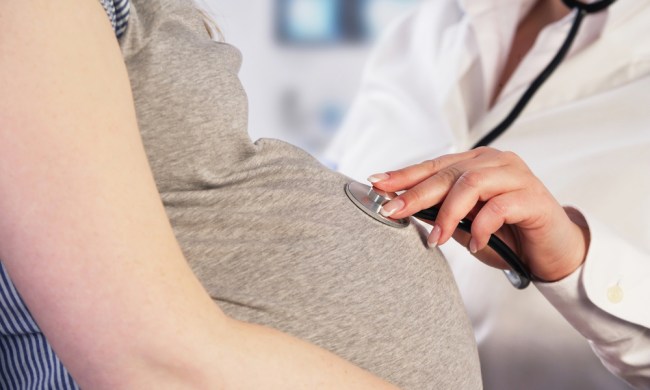
Pediatricians cover a lot of ground in a baby’s 9-month checkup, analyzing behavior patterns, developmental progress, and of course physical health. This includes several questions for you — so take a look at this list and make sure you have the right information at the ready.
Keep in mind that this list covers a “well-baby” checkup, as opposed to one where a baby may have acute or uncommon health issues. And in news that’s music to any parent’s ears, there are usually no shots at the 9-month checkup.
(Immunization schedules and other specific components of a checkup can vary, so check with your doctor’s office beforehand for more information.)
Full physical checkup
A physical workup is central to most any doctor visit, and that goes for adults as well as babies. Some common physical components of a 9-month baby appointment can include:
- Using a stethoscope to check heart rate and breathing
- Checking eyes and ears for various conditions and potential infection
- Looking in the mouth for teeth and signs of infection
- Inspecting the top of your baby’s head for soft spots (“fontanels”)
- Checking reflexes and examining skin for rashes and discoloration
- Feeling the abdomen for a hernia or enlarged organs
- Inspecting the diaper area for signs of infection
- Moving your baby’s legs to look for joint problems
Be ready to answer questions
Pediatricians will undoubtedly want to talk with the baby’s parents or guardian. Before you head to the appointment, confirm that you have as much information prepared as possible. If this means doing a bit of research beforehand to better track or remember the specifics of your baby’s habits, so much the better.
Some common questions to prepare for at the 9-month checkup include:
- How’s your baby eating? Tell the doctor if your baby is refusing solid food or drinking from a sippy cup.
- How’s your baby sleeping? There’s a good chance your 9-month-old is not yet sleeping through the night. Log your baby’s sleeping patterns (time and duration are plenty) if you want to give your doctor the best information possible.
- Have you babyproofed your home? If you haven’t already done so, you’ll need to childproof much of the house against little hands and feet that are about to become a lot more mobile. This includes stairs and electrical outlets, unsafe areas of the house like the kitchen, and cabinets containing any potentially hazardous items. Also, always make sure car seats are properly installed.
- Has your baby starting crawling? Little by little, most babies have started crawling, slithering, or otherwise transporting themselves around the house at this stage. Some might even be pulling themselves up on furniture.
- Is your baby talking? Your baby’s babbling is slowly turning into actual words. If your baby is talking, tell the doctor which words your baby can say, as well as those that they understand, such as their name.
- How are your baby’s motor skills? The pediatrician will likely want to know more about your baby’s gross and fine motor skills. For gross motor skills, think larger movements — one example for a baby at 9 months is the ability to get into a sitting position with no help. An example of fine motor skills at this age would be a more detailed task, like picking up a small object between the thumb and forefinger.
Developmental milestones
All those skills your baby has been perfecting? The doctor will want to see them, too, if possible. Some 9-month milestones include:
- Getting into a sitting position, sitting unassisted
- Crawling
- Pulling up to stand
- Working to get something that’s out of reach
- Objecting to the absence or removal of a favorite item
- Understanding his or her name
- Laughing
- Mimicking sounds and gestures
- Pointing and using other nonverbal communication
- Babbling, or perhaps saying “Dada” or “Mama”
With so much going on in your baby’s life, there’s plenty for your pediatrician to check at 9 months. With the first birthday on the horizon, this is an exciting time in a baby’s developmental timeline.
As always, there is a wide range of normal when it comes to baby development. If you have any concerns, ask the doctor.





